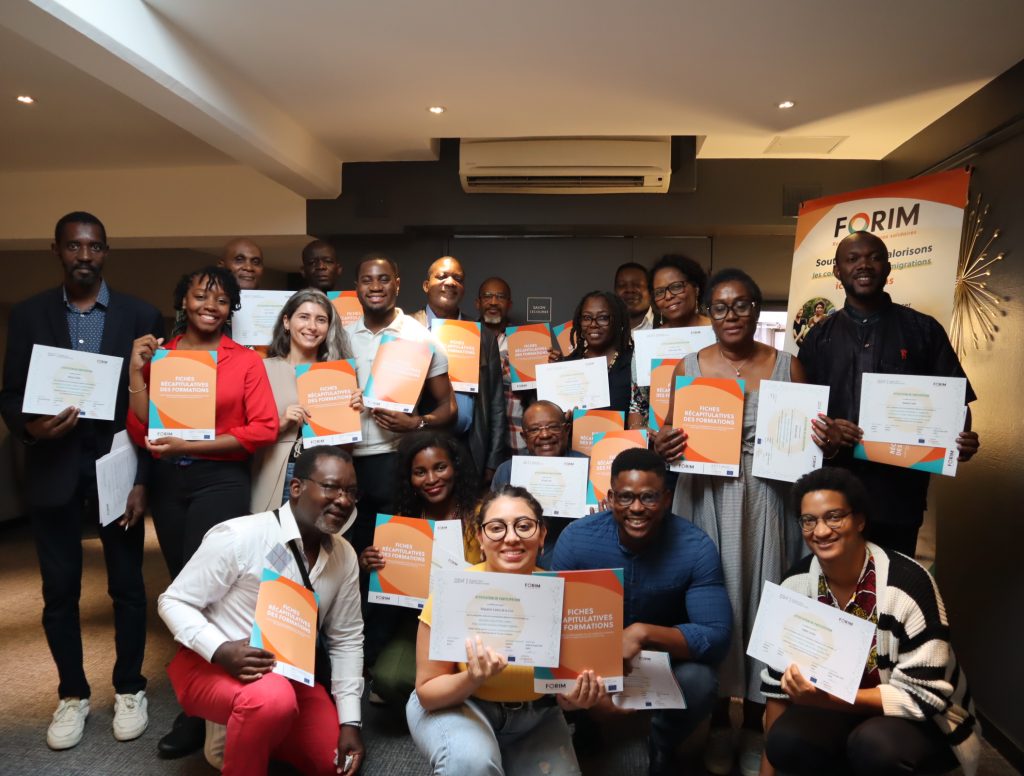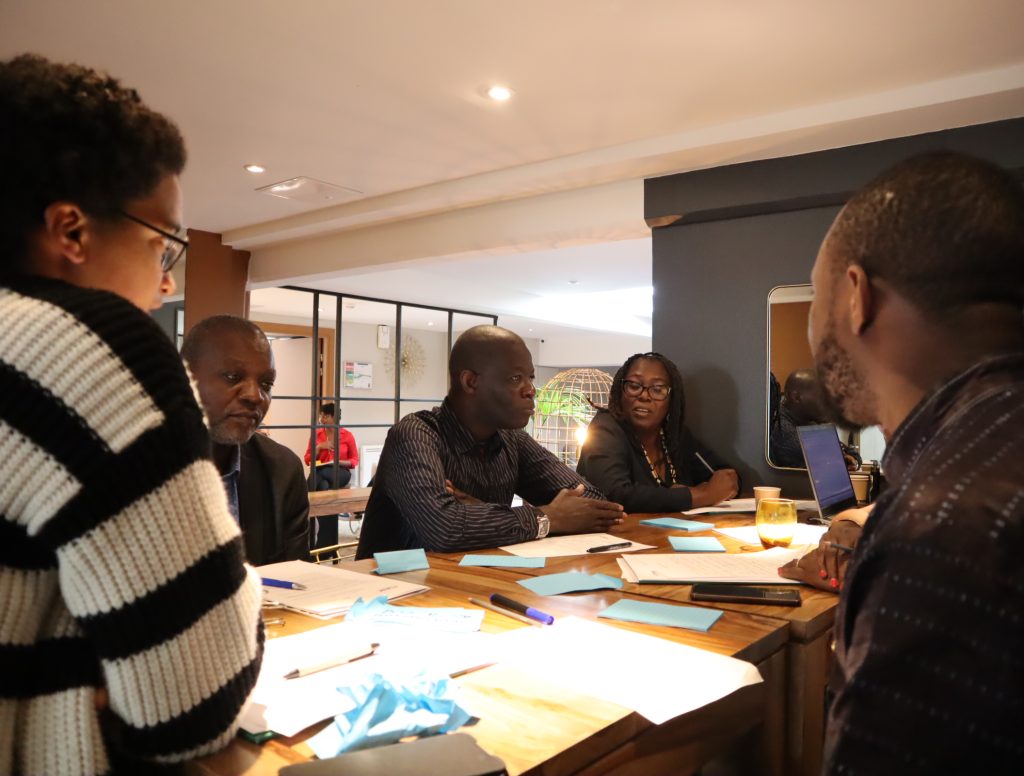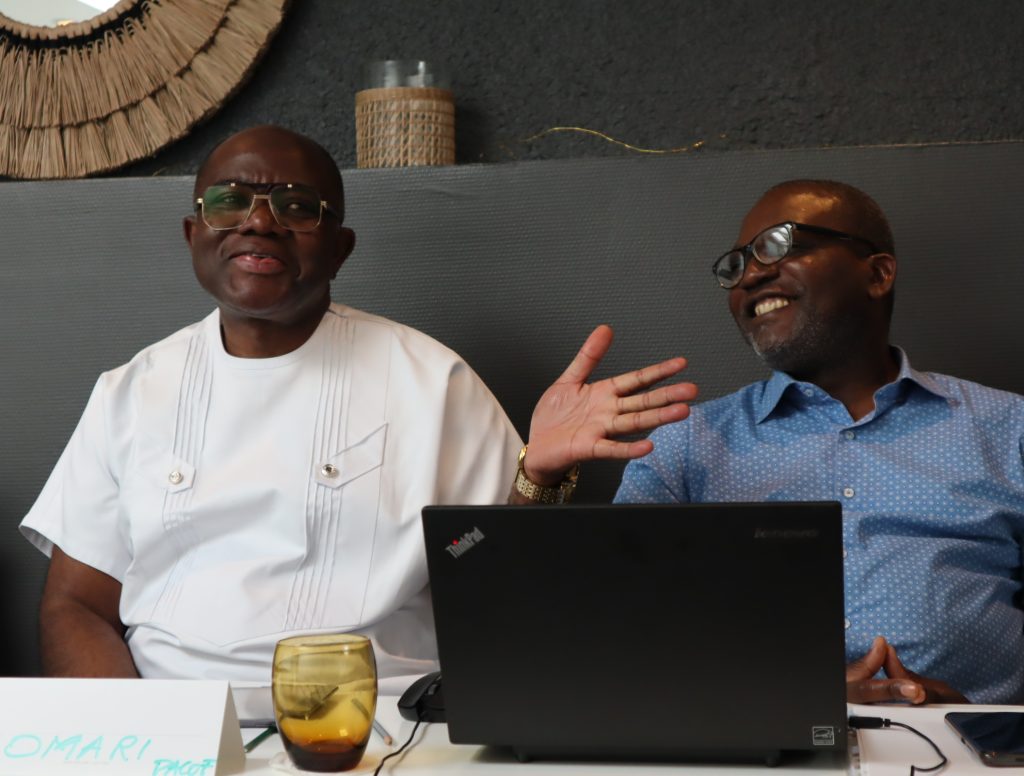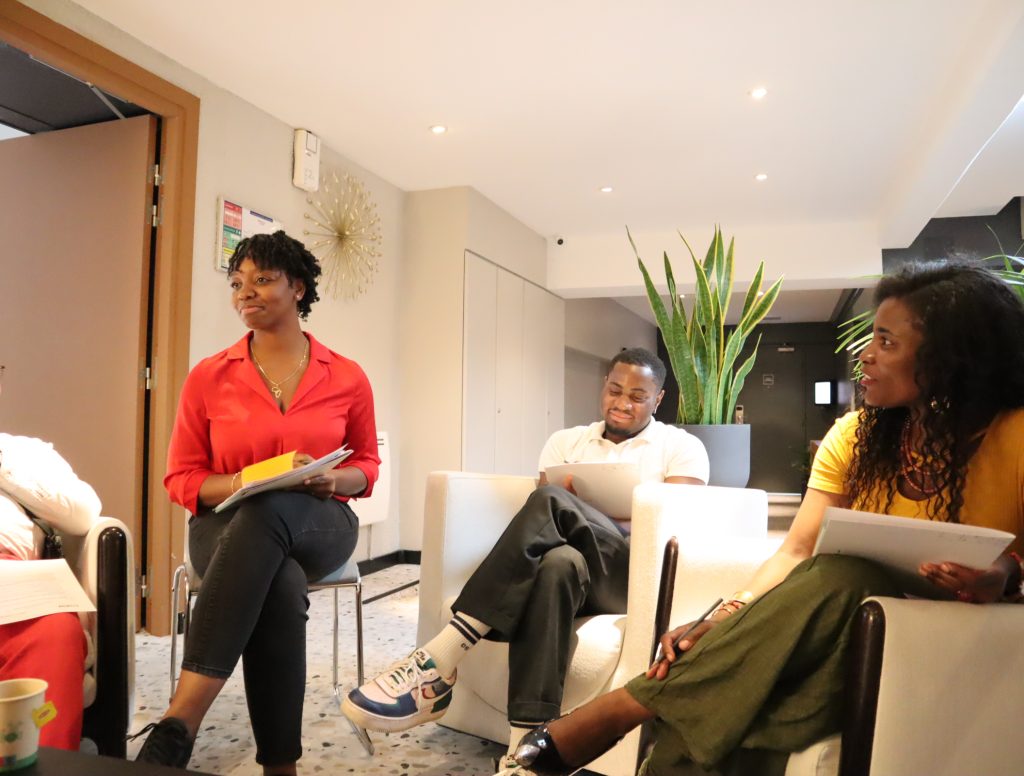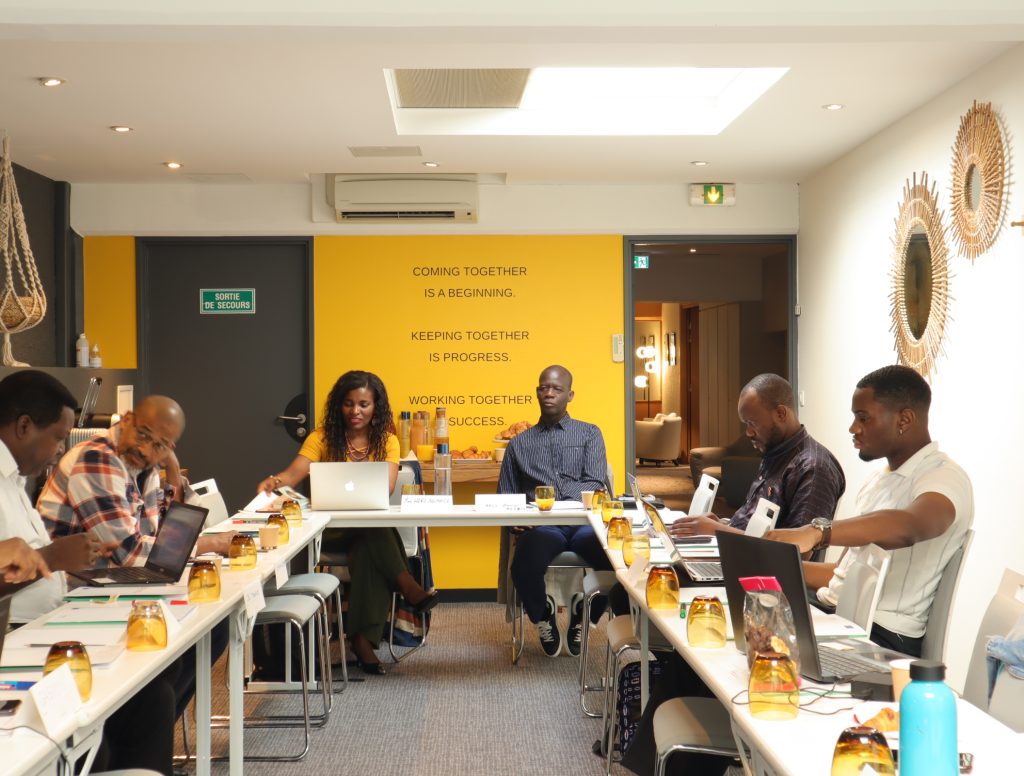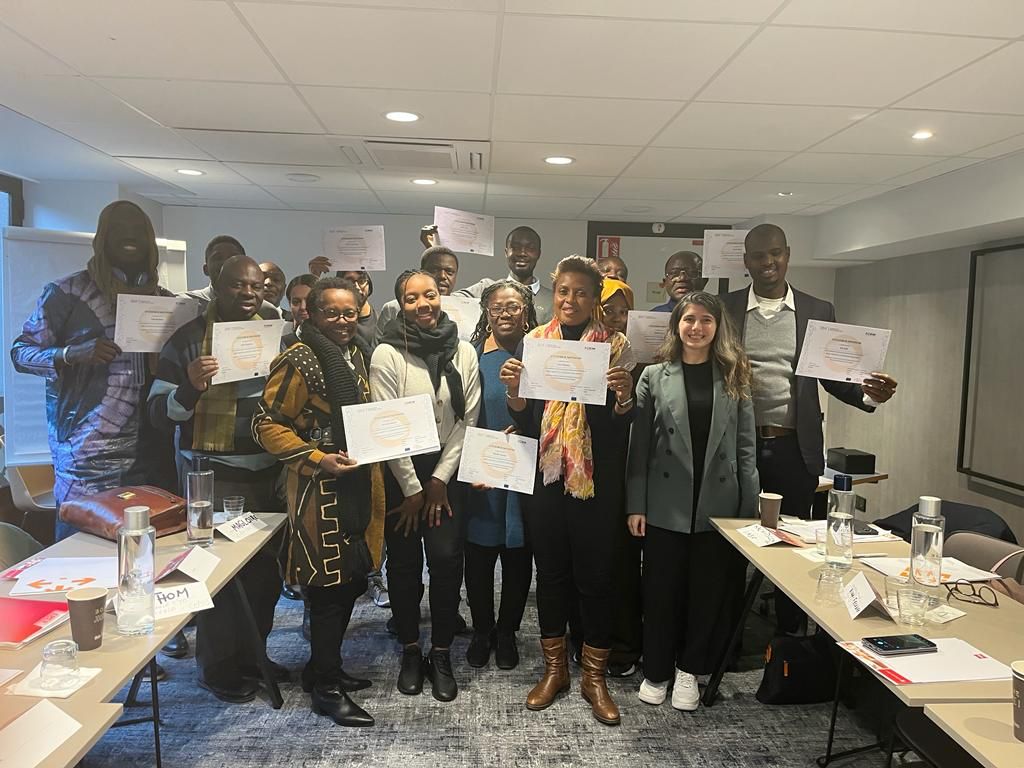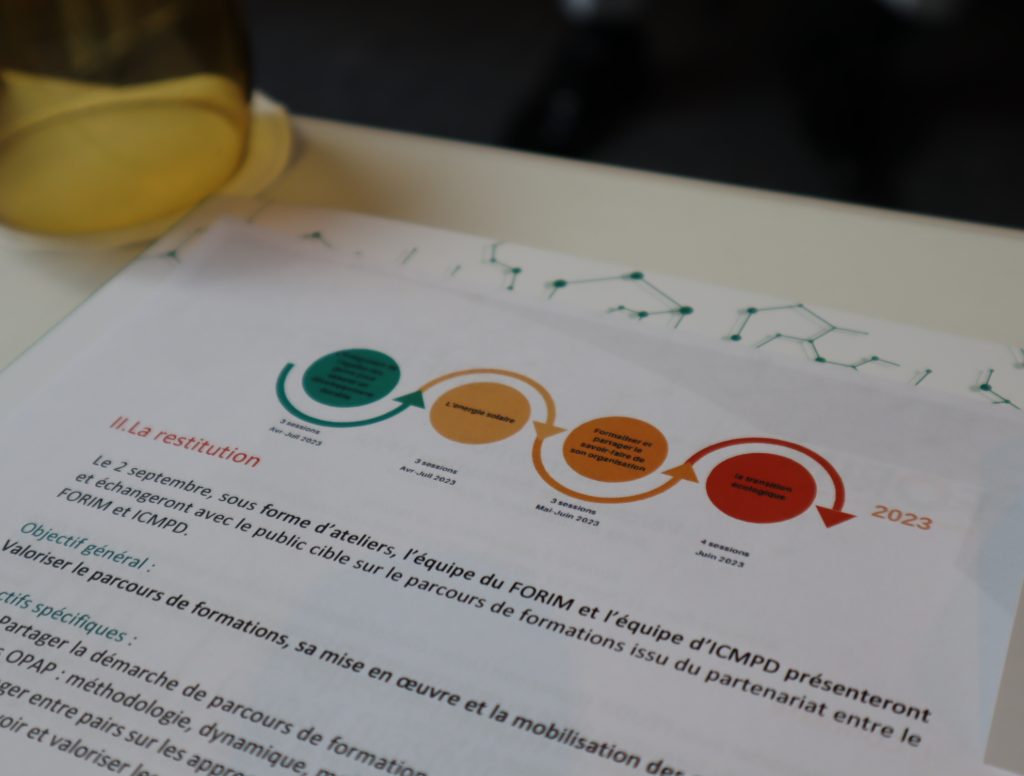
Strengthening the intervention capacities of diaspora networks
Established in France in 2002, FORIM manages a unique structure whereby diaspora networks support diaspora organisations by accompanying them in project design and implementation in countries of origin. This promotes cascade learning and peer exchange. With the support of FORIM-accredited networks, individual diaspora organisations in France can apply for financing for micro-projects through FORIM’s PRA/OSIM programme (Programme d’Appui aux projets des Organisations de Solidarité Internationale issues de l’Immigration).
The networks are collectives of FORIM’s member organisations skilled in project design and management. On a yearly basis, they provide support on over 150 aspiring projects, including technical and intercultural expertise and familiarity with project implementation in territories of origin.
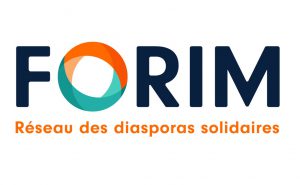
Programme of activities
Strengthening FORIM’s support operator (i.e. networks) capabilities has a knock-on effect on the quality and developmental impact of diaspora-development projects implemented under the PRA/OSIM programme.
With EUDiF, FORIM is building the skills of support operators through courses on project management and accompaniment, public funds management, communication, gender mainstreaming and stocktaking as well as sectoral competences (e.g. renewable energy and the green economy)
Experts Marianne Poisson and Robin Nael prepared and disseminated a questionnaire to support operators to self-assess their needs, learning priorities and expectations.
Based on the needs assessment, the experts developed the training material (including training content, power point presentations, group exercises and trainers' notes) grouped in three sessions:
Three online sessions and an onsite session in Paris were organised to deliver the training to 24 participants.
EUDiF and the experts prepared tailored feedback forms to assess the learnings and the satisfaction of participants with the activities.
The experts subsequently created a "Frequently asked questions" list based on the feedback received during the sessions.
Expert Mireille Jallet from ERASMED conducted the needs assessment by telephone calls and classified the support operators by their level of experience in funds management.
The training sessions aimed to help support operators master the main principles of a budget forecast and adopt a common language in public funds management.
They also guided support operators in identifying and anticipating potential pitfalls of the project from the beginning, and to apply adapted solutions intended to reduce risk.
The content included toolkits and guides to support these steps.
There were a total of seven sessions online and one onsite in Paris on 26 November; 38 participants attended the sessions.
The expert collected feedback at the end of every session, and collected written feedback at the end of the last session.
Expert Randa Chekroun, former communication officer at FORIM, sent out a survey to support operators to evaluate their needs. Having worked so closely with them in the past, Randa already had a good idea of what could be required.
The three sessions had the following themes:
During three online sessions the expert shared theoretical and practical knowledge on the three themes with 26 participants.
Randa collected feedback from the support operators in feedback forms, and prepared a "frequently asked questions" list based on comments and feedbacks.
Expert Sarahi Gutierrez from Association Batik International assessed participants’ knowledge on gender concepts, roles and stereotypes. A person may have a good grasp of the concepts but at the same time make comments that reinforce stereotypes.
The aim of this training course on gender mainstreaming is to raise awareness among support staff of human rights and gender equality issues. The training material focus on key concepts and definitions of gender, an introduction to gender mainstreaming, and gender mainstreaming in project identification, design, planning, implementation, monitoring and evaluation.
Two sessions were organised onsite for this training topic to ensure the highest levels of interactivity. The last session was organised online.
After each training session, Sarahi collected feedback and shared with her insights about future training needs
Capitalising on experience or “stocktaking” is a process of transforming experience into shareable knowledge. Experts Anaïs Trousselle and Itane Lacrampe-Camus from NARRAU conducted a needs assessment and determined that creating a module focused on establishing a shared theoretical foundation for stocktaking, along with practical tools that can be adapted, would offer optimal support for individuals engaged in the stocktaking process.
The training material aimed at achieving three objectives:
The team organised the two training sessions under this module onsite.
The feedback received for this training session was overwhelmingly positive. Participants expressed their satisfaction with the content and delivery of the sessions. At the conclusion of the training, the experts identified additional training needs that could be considered for future sessions.
Based on the needs assessment, “Doctors without Borders” defined the aim of this course as to raise awareness on environmental issues among support operators. The aim of the training is to enhance their knowledge in this area and to help them to mitigate the impact of projects on the environment.
The course convers information in three distinct areas:
To deliver the three modules, the team organised three training workshops online.
At the end of the training sessions, the team shared a feedback form as per the usual procedures.
The needs assessment conducted by Gret concluded that the support operators have a relatively good knowledge of ecological transition and have already been confronted with concrete situations. They therefore proposed to build on the knowledge of participants and to facilitate learning and networking among the support operators.
The course focused on
Four workshops were organised online. They relied heavily on experience sharing and practical case studies.
Gret encouraged feedback at the end of every session, demonstrating a willingness to adapt and improve. Additionally, at the end of the course, Gret compiled a list of frequently asked questions based on the interactions during the sessions.
